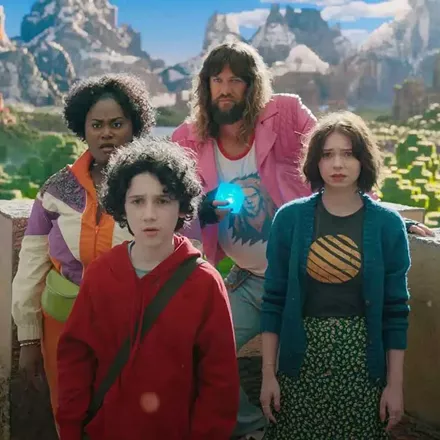Child's (Scottish) Play
A new Macbeth explores the ripple effects of violence across generations.
By Scott Renshaw @scottrenshawAdapting Shakespeare for the screen may be the easiest thing any filmmaker can do. It may also be the hardest.
In terms of reducing the risk of failure, any director would love to begin with the most iconic stories, the most psychologically complex characters and the richest turns of phrase in the English language. On the other hand, that director is also wrestling with 400 years of history that almost certainly includes comparison with previous film versions of the same material. In the case of Justin Kurzel—an Australian director making only his second feature, after the gritty thriller The Snowtown Murders—that means if you're going to make another Macbeth, you'll be measuring up to interpretations of the same material made by Orson Welles, Akira Kurosawa and Roman Polanski. So, you know, no pressure or anything.
There's a fine line between defining a unique enough perspective to justify yet another version, and screwing with the root text so that it's nearly unrecognizable. And Kurzel walks that line startlingly well, grounding everything in the familiar story of Macbeth (Michael Fassbender), the Scottish warrior/nobleman who successfully leads the battle defending the rule of King Duncan (David Thewlis) from a rebellion. Then comes the prophecy of three "weird sisters" that Macbeth is to become king himself, and the instigation by Lady Macbeth (Marion Cotillard) that her husband should consider turning to violence to take his place on the throne.
Kurzel is smart enough to understand that the ambition and guilt of the Macbeths are central to the story, and he showcases the moments revealing those emotions. He opts for long, sustained takes of crucial monologues like Lady Macbeth's "out damned spot" speech and Macbeth's "all the world's a stage," allowing Cotillard and Fassbender to dig deeply into the impulses that push people toward terrible actions, and the regret that follows. The supporting cast is uniformly terrific—including Paddy Considine as Banquo and Sean Harris as MacDuff—but the two lead actors provide a sturdy foundation as they venture into portrayals of madness that never veer into caricature.
That foundation allows Kurzel the freedom to explore decidedly non-canonical ideas in his interpretation of Macbeth, leading to some fascinating thematic connections. Where the text only hints at the possibility that the Macbeths ever had a child, Kurzel opens with them at their young son's funeral, linking their desire for immediate power to being severed from a connection to the future. He also makes Duncan's son and heir, Malcolm (Jack Reynor), a witness to his father's murder at Macbeth's hands, a motif that is later echoed when another child sees his father's violent death firsthand.
All those decisions are part of a bigger picture in which children play a constant, generally unsettling role. That opening battle—only referred to retrospectively in Shakespeare's text—shows a group of soldiers who are little more than boys coming to fortify the ranks of Macbeth's army; their deaths haunt Macbeth, with one of them later appearing during the "is this a dagger I see before me" speech. The three witches/sisters also appear as different phases of motherhood—one with a baby, and one with a young girl, and the other alone. A story that rests on lines of succession, and making sure by whatever means necessary that they have no chance of being continued, is repeatedly transformed by Kurzel into a story about the trickle-down effect of violence on the young. Every death sends ripples across generations.
Kurzel does become a bit too infatuated with portraying that death. The opening battle sequence is a melee of flying blood, occasionally stopped for showy bits of slow-motion. Other key acts of violence get equally graphic depictions. But Kurzel also shows a willingness to consider unique dimensions in nearly every key moment, as when he presents the respective scenes of Lady Macbeth and Macbeth convincing the other of the need for violent action as mirrored appeals to sexual lust. This Macbeth digs into the collision between the urge to create life and the urge to destroy it, and in so doing addresses the challenge facing any retelling of an oft-told tale: It provides a justification for its own existence.
More by Scott Renshaw
-
Comedian Steve Hofstetter interview
Veteran standup talks about getting started, dealing with hecklers, and learning a valuable lesson in SLC
- Apr 11, 2025
-
Film Reviews: New Releases for April 11
The Amateur, Drop, The Ballad of Wallis Island, Warfare, King of Kings, Sacramento
- Apr 10, 2025
-
Movie reviews: THE BALLAD OF WALLIS ISLAND, WARFARE, THE KING OF KINGS
Wars of words, weapons and ideas drive three new theatrical releases
- Apr 9, 2025
- More »
Latest in Film Reviews
Readers also liked…
-
Sundance 2025 wrap-up plus February special screenings
Uncertainty about the future location shifts focus away from the movies
- Feb 5, 2025







